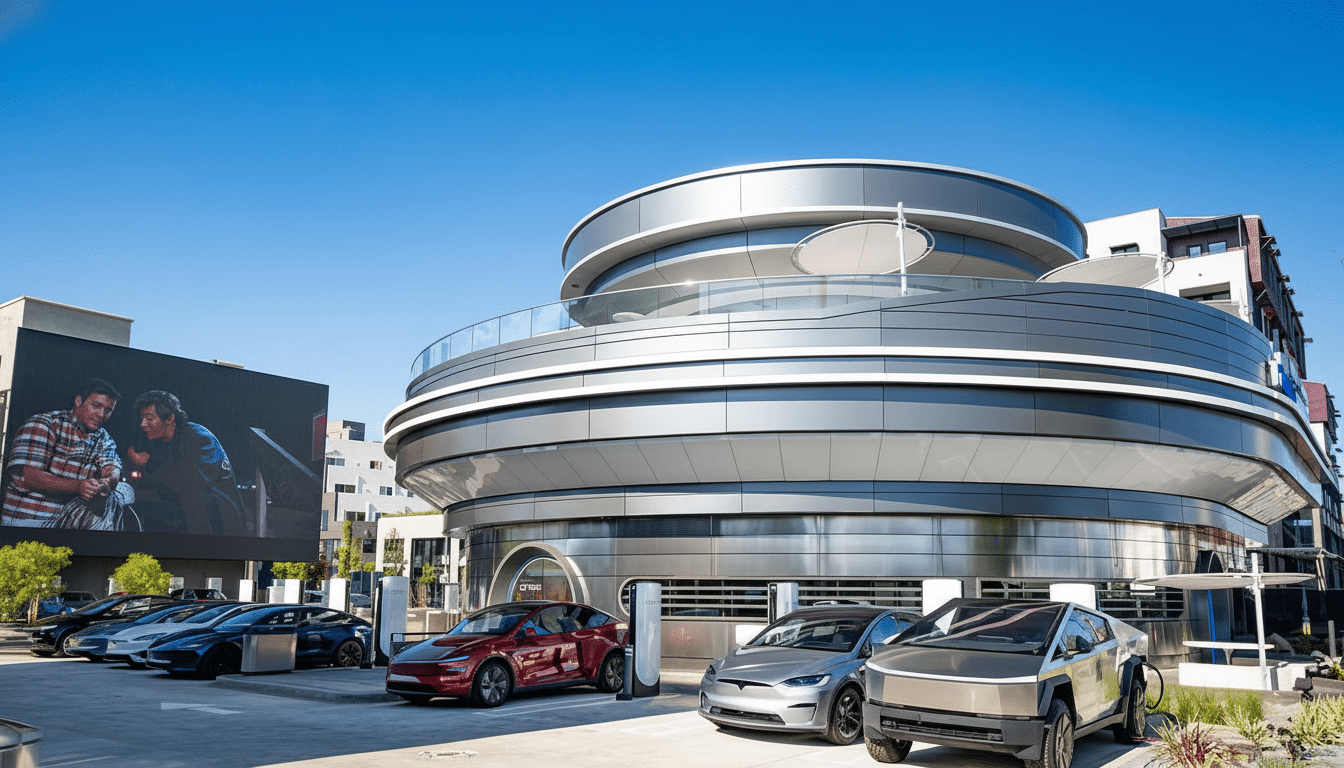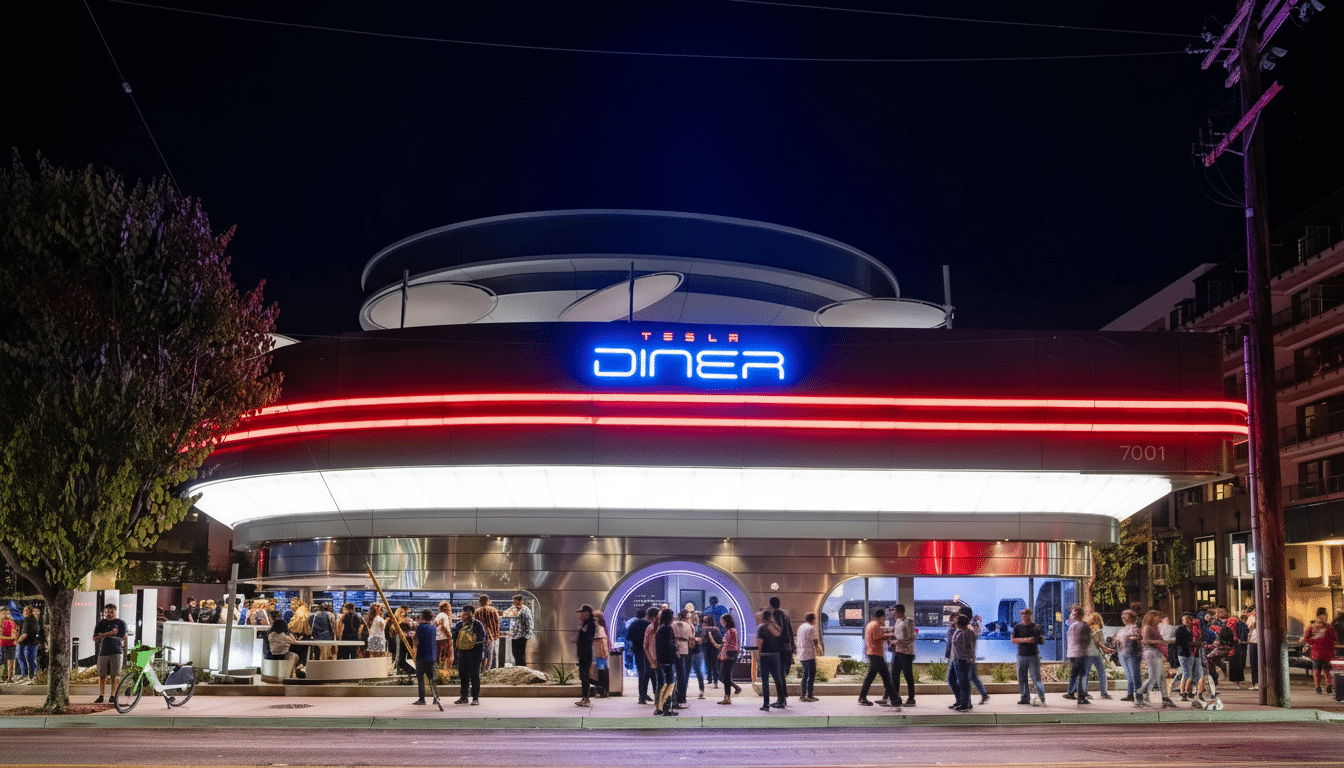Elon Musk’s futuristic Tesla Diner in Los Angeles is being kicked to the curb when it comes to its culinary lead. Longtime L.A. chef and owner Eric Greenspan has stepped away from the project to instead open his long-awaited Jewish deli, according to reports in the Los Angeles Times, as well as messages that the chef sent to the paper.
A High-Profile Departure for a High-Concept Restaurant
His exit is an early shake-up for the retro-futurist, UFO-shaped garden that is part drive-in, part Tesla Supercharging hub. The chef said he’s putting all his chickens back into the Mish basket, a deli concept he has been banging the drum for — and reportedly it will open in 2022. And with that culinary cowbird-type maneuver, we see yet another classic hospitality fork: go all in on one personal brand or corral the churn of a headline-making corporate-adjacent steed.

The Los Angeles Times also wrote that Greenspan is taking heat for working with a fellow named Musk, a cautionary tale about how marquee names can be customer sponges and lightning rods. But it also muddies the waters of hiring and retention, where a concept that is still in the process of defining itself can often struggle.
Menu and Service Model Already in Flux at the Tesla Diner
Since opening, the Tesla Diner has been fine-tuning operations. The streetwise team quickly dialed back the menu — goodbye things like “epic bacon” — as kitchen throughput and the needs of a juice-swilling crowd charging umbilically on premises were calibrated. Management, The Times reported, has been considering going full service; right now orders are placed on tablets with counter pickup — a setup that’s efficient if you’re moving a lot of bodies but that can stifle the brand of chef-driven hospitality that serves as the anchor for destination restaurants.
Changes are often triggered when chefs transition. Look for the next culinary star to rethink prep-heavy plates, vendor relationships, and finding a balance between novelty and stability. In concept-driven spaces, the menu is also less a static document and more of a living operations plan.
Who Is Eric Greenspan — and Why You Should Care
A known entity in L.A. dining, Greenspan’s credits include The Foundry on Melrose, Maré, and a grilled cheese endeavor that does big business; he also turns up regularly on television shows and has written a cookbook. His arsenal is one of comfort-food instincts and immaculate technique — both useful for a diner that wants to be more than a photo op. It also relays where on the spectrum his creative priorities fall — heritage recipes, community repeat business, a menu format designed for daily demand rather than spectacle.

Brand Gravity vs. Restaurant Reality at Tesla Diner
Automaker-sponsored restaurants are rare, and the Tesla Diner’s brand gravity is intended to gather attention. But attention cuts both ways. Restaurants live and die by execution — ticket times, consistency, the basics of hospitality — not street-cred marquee signage. Industry data from the National Restaurant Association has long reflected one of the highest labor churn rates in the economy, a core reason why early leadership changes are inevitable as teams find their footing and refine the service model.
And then there’s the logistical difficulty of designing a kitchen that supports two very different types of use: meals you can eat before your car has charged and meals designed to keep you happy as long as it takes to charge. There are few menus that arc both ways without snapping in two. That tension may well have been part of the calculus behind pruning SKUs early and reassessing full service.
What to Watch Next with Tesla Diner in Los Angeles
Three signals will suggest the path forward:
- The appointment of a new pizza-school head
- A resolution of table service
- A clarified culinary identity
A more taut, comfort-forward lineup — burgers, patty melts, all-day breakfast, and a signature dessert — might shore up execution while retaining the diner’s throwback charm. If the team opts for full service, anticipate higher check averages but a more pronounced need for staff training and reservation pacing to align with charging cycles.
To Greenspan, the deli project is a clear narrative: a chef following his personal heritage and everyday hospitality. For Tesla Diner, the challenge now is easier and tougher at the same time: demonstrate that it can be a reliable neighborhood restaurant that also puts on a show. The spotlight is installed; the substance is up next.

